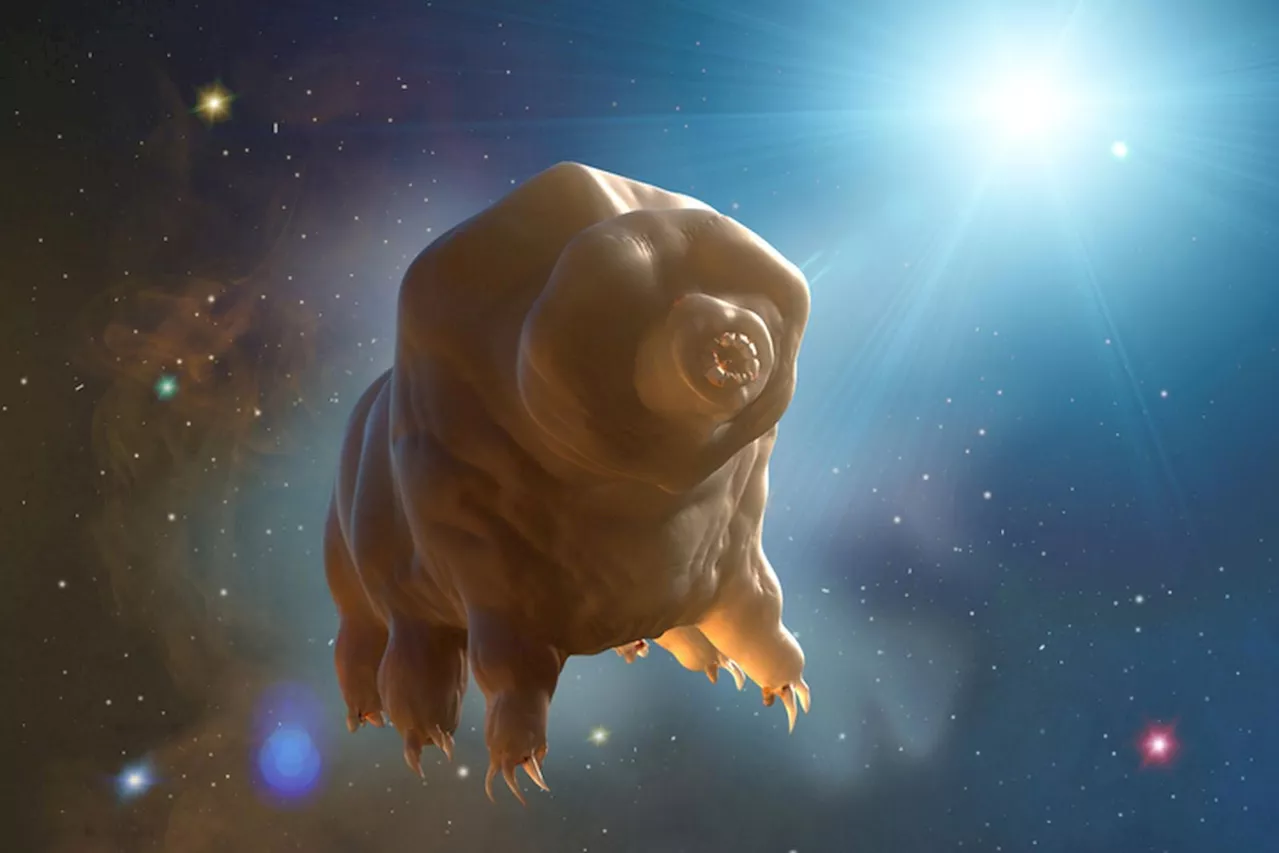Science, Space and Technology News 2024
Researchers have discovered that proteins from tardigrades, known for surviving extreme conditions, can slow molecular processes in human cells, offering promising applications in aging research and cell storage. This finding paves the way for developing new technologies to enhance human health and treat diseases.
Measuring less than half a millimeter long, tardigrades — also known as water bears — can survive being completely dried out; being frozen to just above, when all molecular motion stops); heated to more than 300 degrees Fahrenheit; irradiated several thousand times beyond what a human could withstand; and even survive the vacuum of outer space.
“Amazingly, when we introduce these proteins into human cells, they gel and slow down metabolism, just like in tardigrades,” Sanchez-Martinez says. “Furthermore, just like tardigrades, when you put human cells that have these proteins into biostasis, they become more resistant to stresses, conferring some of the tardigrades’ abilities to the human cells.”
United States Latest News, United States Headlines
Similar News:You can also read news stories similar to this one that we have collected from other news sources.
![]() Unlocking the Secrets of Semiconductors With a Single CLIMAT MeasurementScience, Space and Technology News 2024
Unlocking the Secrets of Semiconductors With a Single CLIMAT MeasurementScience, Space and Technology News 2024
Read more »
 Unlocking the Secrets Behind Galaxy FormationScience, Space and Technology News 2024
Unlocking the Secrets Behind Galaxy FormationScience, Space and Technology News 2024
Read more »
 Spark of Life: Unlocking the Secrets of Ancient Mars Through FormaldehydeScience, Space and Technology News 2024
Spark of Life: Unlocking the Secrets of Ancient Mars Through FormaldehydeScience, Space and Technology News 2024
Read more »
 Unlocking the Secrets of Altermagnets in Spin-Based ElectronicsScience, Space and Technology News 2024
Unlocking the Secrets of Altermagnets in Spin-Based ElectronicsScience, Space and Technology News 2024
Read more »
 Unlocking Earth’s Secrets: How Ancient Rocks Can Forecast Future QuakesScience, Space and Technology News 2024
Unlocking Earth’s Secrets: How Ancient Rocks Can Forecast Future QuakesScience, Space and Technology News 2024
Read more »
 Unlocking the Secrets of Aging: Researchers Reveal Key to Intestinal BalanceScience, Space and Technology News 2024
Unlocking the Secrets of Aging: Researchers Reveal Key to Intestinal BalanceScience, Space and Technology News 2024
Read more »
